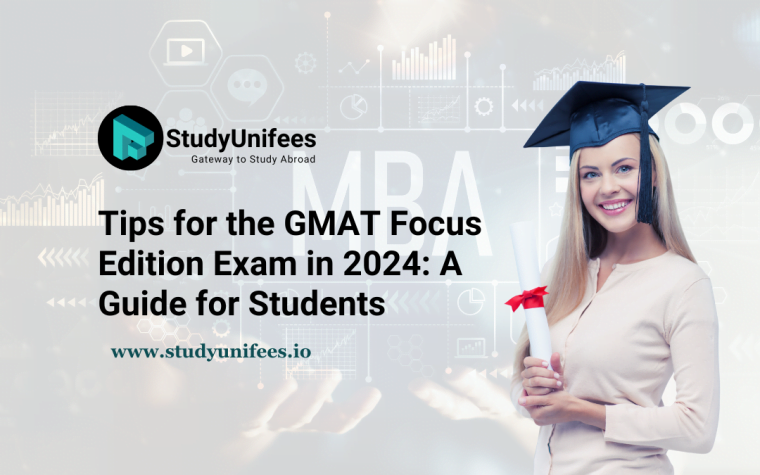Studying abroad has always been an attractive option for students seeking a global perspective and quality education. Among the myriad of choices available, pursuing an MS in United States has become the ultimate study abroad goal for many. In this blog, we’ll explore the various kinds of MS programs, delve into the importance of and demand for STEM (Science, Technology, Engineering, and Mathematics) graduates, highlight the ten most popular MS courses, discuss the top universities offering these programs, and shed light on the process of applying for M.S. programs. Finally, we’ll explore how STEM education in the USA opens doors to opportunities such as Optional Practical Training (OPT) and work permit visas, as well as the ease of obtaining a student visa when accepted into an M.S. program.
Types of MS Programs:
MS in USA is diverse, catering to a wide range of academic interests and career goals. Some of the common types include:
- M.S. in Computer Science:
- Stanford University
- Massachusetts Institute of Technology (MIT)
- Carnegie Mellon University
- University of California, Berkeley
- California Institute of Technology (Caltech)
- M.S. in Electrical Engineering:
- University of Illinois Urbana-Champaign
- Georgia Institute of Technology
- University of Michigan
- Purdue University
- University of California, San Diego
- M.S. in Data Science:
- Harvard University
- Columbia University
- University of Washington
- New York University
- University of California, Los Angeles
- M.S. in Biotechnology:
- Johns Hopkins University
- Massachusetts Institute of Technology (MIT)
- University of California, San Francisco
- Stanford University
- University of Pennsylvania
- M.S. in Environmental Science:
- Yale University
- Stanford University
- Massachusetts Institute of Technology (MIT)
- University of California, Berkeley
- Harvard University
Importance of STEM Graduates:
STEM fields play a crucial role in driving innovation, economic growth, and technological advancements. The demand for skilled professionals in these areas is consistently high, making STEM graduates highly sought after by employers globally. The USA, being a hub for technological innovation, offers an ideal environment for students to acquire cutting-edge knowledge and skills with an MS in USA.
Top 10 Most Popular M.S. Courses and Universities:
- M.S. in Computer Science:
- Stanford University
- Massachusetts Institute of Technology (MIT)
- Carnegie Mellon University
- University of California, Berkeley
- California Institute of Technology (Caltech)
- M.S. in Electrical Engineering:
- University of Illinois Urbana-Champaign
- Georgia Institute of Technology
- University of Michigan
- Purdue University
- University of California, San Diego
- M.S. in Data Science:
- Harvard University
- Columbia University
- University of Washington
- New York University
- University of California, Los Angeles
- M.S. in Biotechnology:
- Johns Hopkins University
- Massachusetts Institute of Technology (MIT)
- University of California, San Francisco
- Stanford University
- University of Pennsylvania
- M.S. in Environmental Science:
- Yale University
- Stanford University
- Massachusetts Institute of Technology (MIT)
- University of California, Berkeley
- Harvard University
The Application Process for M.S. Programs:
The application process for MS in USA is a multi-step journey
that requires careful planning and preparation. Here’s a simplified guide:
- Research and Shortlisting: Begin by researching universities and their M.S. programs. Consider factors such as faculty expertise, program curriculum, available resources, and location. Shortlist universities that align with your academic and career goals.
- Standardized Tests: Most M.S. programs require standardized test scores, such as the GRE (Graduate Record Examination) or GMAT (Graduate Management Admission Test). Prepare thoroughly for these exams and schedule them well in advance.
- Academic Transcripts and Recommendations: Collect your academic transcripts and letters of recommendation from professors who can speak to your academic abilities and potential for graduate study.
- Statement of Purpose (SOP) and Resume: Write a compelling Statement of Purpose outlining your academic and career goals, as well as a detailed resume highlighting your achievements, research, and relevant experiences.
- English Proficiency: International students must demonstrate English proficiency through tests like the TOEFL (Test of English as a Foreign Language) or IELTS (International English Language Testing System).
- Application Submission: Complete the online application form for each university, attaching the required documents. Pay close attention to deadlines, as missing them can jeopardize your chances of acceptance.
- Interviews: Some programs may require interviews as part of the selection process. Prepare for these by researching common questions and practicing your responses.
- Acceptance and Visa Application: Once accepted into a program, you’ll receive an acceptance letter. This letter is crucial for obtaining a student visa.
Student Visa and Ease of Admission:
Obtaining a student visa to the United States becomes significantly more manageable when you’ve been accepted into an M.S. program. The acceptance letter from the university serves as essential documentation during the visa application process. The F-1 student visa allows international students to study in the USA and is generally easier to obtain when enrolled in a recognized and accredited program.
STEM Opportunities in the USA:
One of the significant advantages of pursuing STEM-related MS in USA is the pathway it creates for international students to stay and work in the country. The Optional Practical Training (OPT) program allows students to work in their field of study for up to 12 months post-graduation. STEM graduates can further extend this period by 24 months, providing them with valuable hands-on experience and increasing their chances of securing employment in the USA. Moreover, the USA offers the H-1B visa program, which allows employers to temporarily employ foreign workers in specialty occupations. STEM graduates are particularly well-positioned to secure H-1B visas due to the high demand for their skills in the American job market.
Conclusion:
In conclusion, pursuing an MS in USA has emerged as the ultimate study abroad goal, particularly in STEM fields. The variety of MS programs available, coupled with the high demand for STEM graduates, makes the USA an attractive destination for those seeking quality education and promising career prospects. The top universities in the country offer world-class education, and the opportunities provided by programs like OPT and H-1B visas make the USA a compelling choice for international students aspiring to make a mark in the global arena of science, technology, engineering, and mathematics. If you’re considering advancing your education and career in STEM, the USA stands as a beacon of excellence and opportunity. The streamlined process of obtaining a student visa upon program acceptance in an MS in USA further adds to the appeal of making the USA your ultimate study destination.



